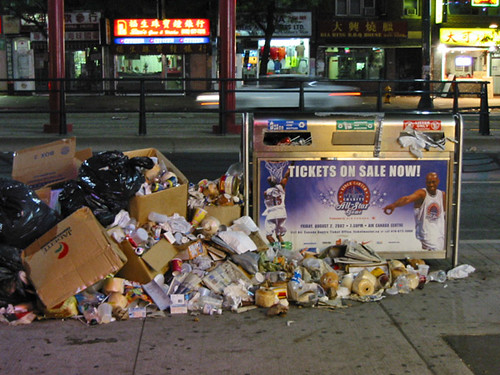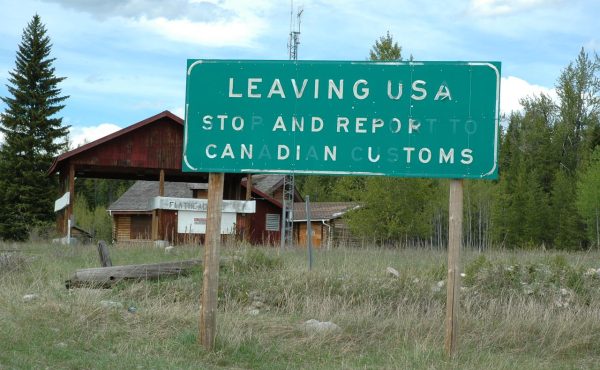

For all the spin and counter-spin hovering around the David Miller-John Baird feud over the streetcar “ask,†most observers have neglected to account for the critical dynamic that has defined this controversy, which is the exercise of political control.
Setting aside all the policy justifications and the mug’s game of tallying up the economic spin-offs, the story line here has always put Toronto in the tenuous position of dictating how Ottawa spends. And in the world beyond the 416, no self-respecting national politician — Tory, Liberal or other — can get away with letting Toronto help itself to the contents of the federal coffers.
That kind of thing doesn’t sell in Calgary, it doesn’t sell in the Gaspe and it doesn’t sell in Mississauga. As the old joke goes, the only thing that holds Canada together is that everyone hates Toronto.
A huge amount of inter-governmental diplomacy is transacted specifically to prevent one order from lording it over another, and this is a lesson Miller surely understands. His administration has gone to great lengths to align its goals with those of the McGuinty Liberals, with the result that provincial-municipal control battles have become mercifully infrequent.
But Miller never invested the same kind of effort with the federal Conservatives, his attempts at chumminess with Baird notwithstanding. What’s more, he seems to have forgotten that the Mike Harris Tories, whose alumni are well represented in Ottawa, rarely passed up an opportunity to wage control battles with Jean Chretien’s Liberals back in the late 1990s. It’s what they do.
And it’s what Miller does, too. Exhibit A: today’s announcement workers strike. The sticking points in the talks have focused on the city’s sick day “bank†and wage demands in the wake of the salary freeze imposed on the non-unionized employees.
In a recession and with an election looming next year, Miller would be a fool not to weigh the broader political costs and benefits of allowing the union to strike, something he resisted doing previously in his mayoralty.
As a lefty, he’s naturally vulnerable on the subject of financial management. While the city’s recent spending increases are mostly offset by new revenue sources (intergovernmental transfers, the notorious tax levies, etc.), his administration’s Achilles Heel is the fact that it has drawn down or neglected many municipal reserve funds, including the one meant to cover long-term liabilities associated with the sick day bank. Those decisions will come back to haunt Miller.
While no one likes a summer garbage strike, Miller realizes he’s got little choice but to exert his political control at this juncture, because to do otherwise would be to allow the civic sector unions to dictate his fate in 2010.
And in the crude calculus of pre-election politics, he’s got little to lose by standing up to a union that’s staking a claim to a lucrative entitlement. Just like John Baird did last week, Miller knows he’s got to demonstrate who’s the boss.
photo by Matthew Borrett
![]()
John Lorinc is a contributing editor to Spacing and writes the magazine’s City Hall column. During the summer months, he’ll be making the occasional blog posts here on Spacing Toronto.




6 comments
I have always gotten the impression that Miller has undue influence with McGuinty. Anyway, this issue might finally drive the point home that the emperor has no clothes. Despite the LTT, VRT, and new fees the city is still broke. The city cannot persist in having the highest per household spending* with the lowest residential tax rate. Rumours abound that next years budget is more than a quarter of a billion behind revenue projections.
The province might have reached its threshold on how much it can ‘grant’ Toronto to again fill the budget hole. Any more might finally awaken the other municipalities in the Province to just how much more Toronto gets. While McGunity might be buying Toronto votes, at the same time he might be selling others.
The only avenue left for the city is to engage in asset sales to fill the yearly shortfall. All those “Invest Toronto†announcements lately leave me with little doubt that this is the chosen route.
* http://southofsteeles.blogspot.com/2008/04/wow-what-difference.html
I think the author is bang on in his assessment of Feds underlying motivation on streetcar deal/no-deal. Outside TO, No points for any federal party who is seen bending over for this City, especially if it is seen as interpreting the rules of a program in a more lax way for TO than for the rest of the country …(and the loudest protests typically come from the rest of the GTA). And if you are a Conservative, you also face the prospect of not even getting any votes in TO if you do (bend).
As if Toronto needs another financial headache, tomorrow MPAC and the City of Toronto are set to have their appeal of the assessments of Toronto’s office towers. MPAC lost at the ARB. If the courts uphold the ARB decision the cost are going to be tremendous.
Thanks for this assessment, John.
I’ve lived in other parts of Canada and enjoyed much Toronto skepticism, but now that I’ve lived in the GTA fishbowl for a while it’s hard for me to retain my balance without seeming like a civic downer.
Lots to love about this fishbowl, of course, but the national political geography here is not always well conceived.
Glen, can you provide references for your blog? I searched the Web and I can’t find anything to back those numbers up.
Sure Dan,
The data is from Financial Information Return which each municipality is required to submit to the Ministry of Municipal Affairs and Housing.
http://csconramp.mah.gov.on.ca/fir/ViewFIR2006.htm